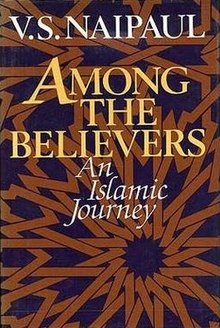A bit late on the Top Ten Tuesday, and a bit behind generally with blogging: busy times at work aaaaaand I just am getting over one of those vicious stomach bugs that prostrates you for 24 hours plus.
I am feeling better but am still on the “cautiously nibbling dry white toast to see if it will stay down” phase of my recovery. Therefore, though I am well enough to blog a bit, I am home from work today because I did not want to risk my toast and ginger ale coming up all over my patients!
Anyway, what better way to coddle myself into recovery than to pick my Top 10 Childhood Books I Love to Revist?
THERE IS NO BETTER WAY.
I slightly redefined this in my mind by deleting the “would” in the heading provided by The Broke and the Bookish.
These are not books I theoretically would love to revisit one day. These are books that I have revisited; books that I do revisit. The proof is in their covers and spines and battered pages. I restricted myself to books that I acquired before high school, and books the same physical copies of which I have dragged from home to dorm to apartment to apartment to home over the course of a good twenty years.
I will give you a photo tour.
The Lord of the Rings, by J.R.R. Tolkien
Yes, Fellowship is bound entirely in duct tape. DON'T JUDGE OKAY. These just sneak in under the cutoff; I started with these around eighth grade. Yep. Lord of the Rings. It's all been said before. I loved and love and will always love these books.
The Deryni Chronicles, by Katherine Kurtz
These have aged less well as literature than the others, but these are in fact the original library books that I checked out repeatedly as a child. The library deaccessioned them and I got them. These are precious artifacts of my reading youth!
The Curse of the Blue Figurine, by John Bellairs
I read a fair amount of John Bellairs in my misspent youth, but this is the one that has stayed with me. Nerdy, bespectacled, bookworm, Catholic school-child, altar-server protagonist? Say no more! This may not have aged well as literature either (better than my beloved Deryni books — sorry, Katherine Kurtz!), but the Edward Gorey covers are timeless.
A Girl of the Limberlost, by Gene Stratton Porter
It might be time to give this one another go. There's also a TV adaptation I've never seen, but would like to. Elnora Comstock is often a bit too good to be true as a protagonist, but I love the way she goes about life.
A Wrinkle in Time, by Madeleine L'Engle
As an adult, I am more fond of L'Engle's memoirs than I am her fantasy, but A Wrinkle in Time was my all-time favorite from about second grade until about eighth grade, when, if I recall correctly, Lord of the Rings finally displaced it. I liked all of the books about the Murray family but Wrinkle was by far my most loved.
The Earthsea Cycle, by Ursula K. LeGuin
Somehow my set is missing The Tombs of Atuan, which was my favorite of the four growing up (LeGuin put out a fifth many years later, which I also own). Perhaps I loved Atuan to pieces? I do not know. These are actually much better coming to them as an adult. There's all sorts of theological insight here that I did not get as a child.
The Dark is Rising Sequence, by Susan Cooper
If you love YA fantasy, especially YA fantasy set not in a past, mysterious world, but the here-and-now, and especially if you love contemporary YA fantasy with a wide and interesting cast of characters: you should have already read these books. If you haven't, I weep for you. Go read them now.
James Herriot
Herriot wrote, I believe, four collections of short stories: All Things Wise and Wonderful; All Creatures Great and Small; All Things Bright and Beautiful; The Lord God Made Them All. I only seem to own two, but I know I went through these over and over. We had them on audiocassette with Christopher Timothy narrating and I would play them at night as I fell asleep, night after night after night. My grandfather was a small-time farmer and watching the BBC adaptations of these on TV together was one of the few things we could enjoy together (I loved my grandfather, but he was a gruff New England farmer out of Ethan Frome and bonding with his grandchildren was not something he did, really.)
Not only do I want to go through these again, I need to buy his other collections of stories! If anyone doesn't know James Herriot, he — no, just Google. I will go on for far too long otherwise.
Calvin and Hobbes, by Bill Watterson
If you do not know Calvin and Hobbes, pretty much I weep for your childhood. This is just one of his many collections. I should, perhaps, attempt to methodically collect all of them, but I haven't gotten there yet . . .
The Complete Sherlock Holmes, by Arthur Conan Doyle
These are in better shape than many of the others because they are a box set (a gift from my Dad, again!) The box itself grew too tatty for me to keep using, and so now the books are just on my shelf. They're actually gorgeous editions and the box was bringing 'em down. Anyway I adore Sherlock Holmes. Always have, always will. Last night in between bouts of throwing up my toenails, I found myself too miserable to focus on a book . . . so I watched the Jeremy Brett adaptation of Hound of the Baskervilles. The love goes deep.
That's all for today! This week I will be playing catch-up with book reviews, so watch for those, for sure!

Follow @earthscorners


















